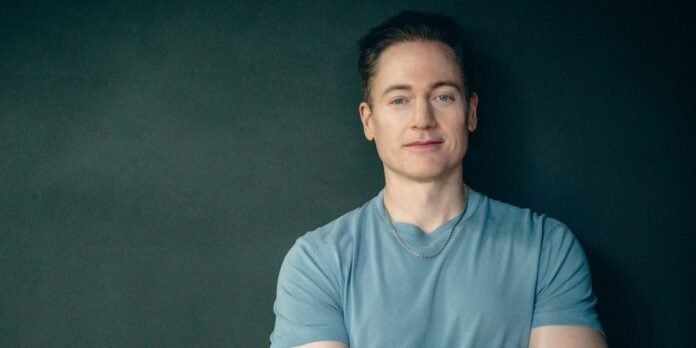Bryan Johnson says he’s considering winding up or selling his anti-aging startup, Blueprint.
Johnson was speaking to Wired’s Katie Drummond in an interview published Monday, and he was asked about the conflicts that came with running his business and religion at the same time.
The 47-year-old biotech entrepreneur is best known for his aggressive quest for eternal youth. In 2021, Johnson embarked on his anti-aging program, Project Blueprint, which he says costs him $2 million a year.
At one point, Johnson infused himself with blood from his son to slow down his aging. He stopped the transfusions after six months, saying there were “no benefits detected.”
Johnson’s company sells a variety of wellness products. These include a $55 “longevity mix” drink and a $42 mushroom coffee alternative they call “Super Shrooms.”
In March, Johnson announced on X that he was starting his own religion, “Don’t Die.” The name is derived from the slogan Johnson used to brand his Netflix documentary, products, and events.
“Years ago, I did a thought experiment imagining myself in the presence of people from the 25th century. It seemed obvious that they’d say Don’t Die is how humanity saved itself and merged with AI,” Johnson wrote in an X post.
Johnson, however, says he’s beginning to see how running a longevity-focused business may not mesh with preaching a religion on the same subject.
“Honestly, I am so close to either shutting it down or selling it,” he told Drummond, adding that he’s “been talking to people about this.”
“I don’t need the money, and it’s a pain-in-the-ass company,” he said.
Please help BI improve our Business, Tech, and Innovation coverage by sharing a bit about your role — it will help us tailor content that matters most to people like you.
What is your job title?
(1 of 2)
What products or services can you approve for purchase in your role?
(2 of 2)
this data to improve your site experience and for targeted advertising.
By continuing you agree that you accept the
Terms of Service
and
Privacy Policy
.
Thanks for sharing insights about your role.
Johnson said he started the business because his friends were asking him for the health supplements he was taking.
“It just evolved in a way where I was trying to do people a solid. The problem is now people see the business and give me less credibility on the philosophy side,” Johnson said.
“I will not make that trade-off. It is not worth it to me. So yeah, I don’t want it,” he added.
Earlier this year, The New York Times reported that Blueprint was facing problems with its finances. The story was published in March and was based on interviews with current and former employees as well as court records and internal documents.
The Times reported that Blueprint was missing its break-even point by at least $1 million a month.
Johnson told Wired Blueprint isn’t in “some kind of emergency financial situation.”
“We are break-even, and I’ve said that publicly many times. We’ve had profitable months, we’ve had loss months,” he added.
Johnson did not respond to a request for comment from Business Insider.






